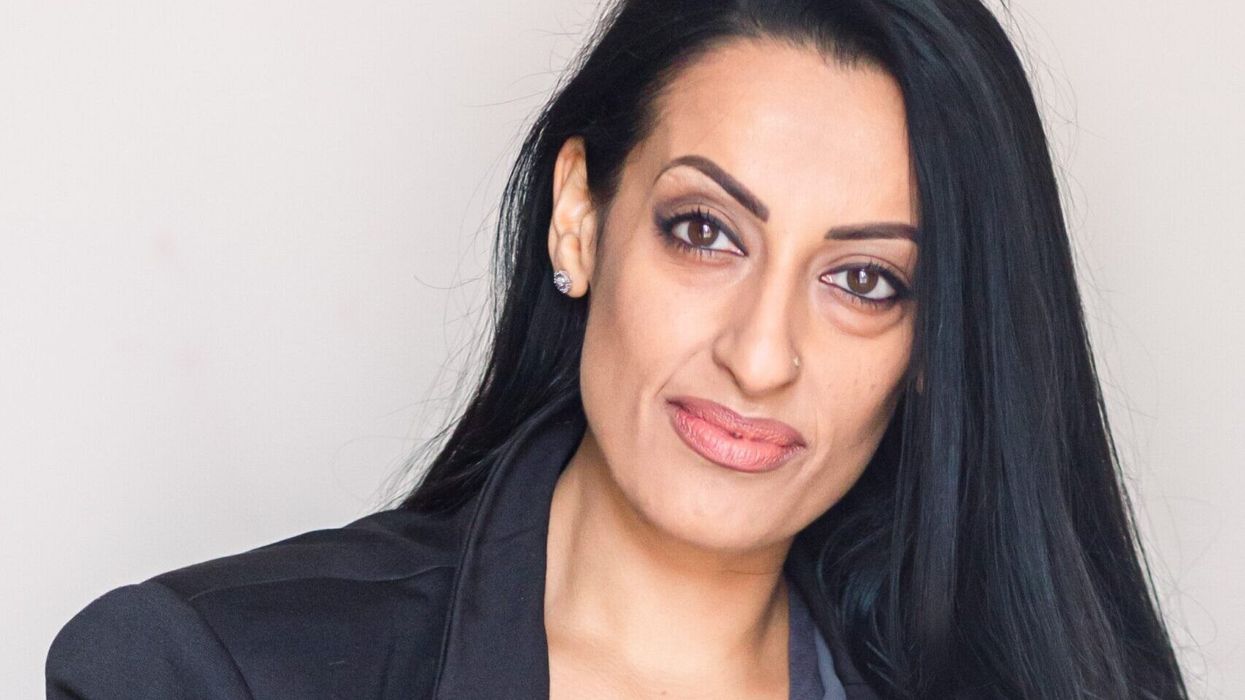Dementia can devastate lives, especially in communities where it is not understood.
When Dr Karan Jutlla’s father developed dementia, she went on a journey – from feeling isolated to gaining a deeper understanding of this life-changing illness, which affects memory, thinking and social abilities. She then became an ambassador for Alzheimer’s Society, raising much-needed awareness.
Eastern Eye spoke to the Wolverhampton-based educator and researcher about how she transformed from feeling helpless to actively making a positive difference for those affected by dementia, including carers.
She also discussed the importance of raising awareness in south Asian communities, understanding dementia, improving care, Alzheimer’s Society Memory Walks and the support available for those who need it..
PUNJABI is the third most spoken language in the UK, but it doesn’t have a word for dementia. The same is true of Hindi, Urdu, Gujarati, and many other south Asian languages.
So, it’s not surprising that there’s a taboo around dementia, leaving thousands of families from south Asian communities without support or even a diagnosis.
Sadly, my father developed alcohol-related dementia in his later years, following the tragic loss of my brother. While my mother worked to keep us afloat, I took on the responsibility of his care. His illness was not understood by our family or community and was often seen as a ‘loss of mind’ or ‘madness’. This lack of understanding made me feel very alone, as alcoholism was not recognised as a condition in the community.
During my first research project in 2006, I realised I wasn’t alone. I met others caring for someone with dementia. The chaos, unpredictability, forgetfulness, warped realities, changes in character, childlike behaviour, loss of dignity – these were all experiences that connected us.
I remember interviewing carers and recognising the pain in their eyes, the pain of losing their loved one even though they were right in front of them. This connection with carers from south Asian communities led me to further research and a deeper understanding of my own community.
I did my PhD on Sikh carers of family members with dementia in Wolverhampton. It revealed the complexities associated with cultural norms, migration experiences and community dynamics that impact a carer’s journey.
Supporting family members, especially elderly relatives, and maintaining a close-knit family is crucial in south Asian communities. We need this support to include open conversations about dementia. Breaking the cultural taboo and stigma is key to getting loved ones the quality support and care they need.
There are no specific statistics on how many people from south Asian backgrounds in the UK are living with dementia, but research suggests we are likely to see an increase in cases.
There are cultural barriers to diagnosis – not just because people do not seek help, but also because the support isn’t tailored to our communities. Many Indian languages do not have a word for dementia, often translating the symptoms as ‘memory loss’ or ‘mental ill health’, which can further stigmatise the condition.
When people do seek a diagnosis, they face additional barriers. Memory test questions are often geared towards those who have lived in the UK all their lives.
For many older people from south Asian backgrounds, English is not their first language, and translation services are scarce.
I have heard of care agencies mixing up south Asian languages, leaving families feeling isolated, anxious about finding the right care, and depressed. We desperately need culturally aware services tailored to different languages.
This requires investment in the health system to ensure every community can get an early and accurate diagnosis.
While more information and support in different languages are needed, Alzheimer’s Society is leading the way by translating advice and support into 11 different languages.
I am proud to have worked with Alzheimer’s Society and community members to develop a resource page for Punjabi-speaking communities. This tackles culturally specific issues, including stigma, and helps to break down taboos.
Alzheimer’s Society’s support services have been called a ‘lifeline’ by those who receive help, whether through their dementia advisers, Dementia Support Line, or online community forum. This autumn, people can show their support by joining one of the 26 Alzheimer’s Society Memory Walks across the UK, raising funds for vital support services and ground-breaking research.
I encourage people to come together to walk for those you love, those you have lost, and everyone living with dementia. My mum took part in the Birmingham Memory Walk last year, and it was incredible to witness that sense of community, knowing others had been affected by dementia too. Together, we can help end the devastation caused by dementia.
If you are from a south Asian community and worried about yourself or someone else, it is crucial to seek an early and accurate diagnosis. By getting help and talking about dementia, you and your families can access the support you need and start planning for the future.
Alzheimer’s Society’s Dementia Support - 0333 150 3456 or download a free symptoms checklist, endorsed by the Royal College of GPs from alzheimers. org.uk/checklist. Register for free at www.memorywalk.org.uk




